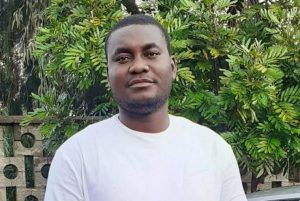A group of Comboni Missionaries living in one of the slums on the outskirts of Nairobi, Kenya, told us what defines their mission.
We live in Korogocho, one of the 200 slums of Nairobi. These slums are home to about 60% of Nairobi’s population. Yet they occupy only 5% of the residential land.
Every day we meet people who come to us and ask for our assistance and prayers in their struggle to secure land tenure and dignity. What they want is not money or wealth; they just want to live in dignity. They want the value of their humanity to be acknowledged. They want to experience the promise of being the children of God. They want to feel the love of God.
When we listen to the Prayers of the Faithful, we hear the sick asking God to intervene because there is no single public hospital for the 320,000+ Korogocho residents. They ask God to intervene and sway the hearts of the politicians who are corrupt. They ask God to enter the hearts and minds of the police who shot and killed innocent children, and they ask God to guarantee them entry to heaven because they have already experienced hell on earth.
Yet in the midst of all these challenges, we may be expected to tell both these faithful and those who oppress them: “May the Lord Bless you, in the Name of the Father, Son and Holy Spirit”. While we can be the vehicle of God in imparting these holy blessings, we are not able to tell the faithful of Korogocho that they should sit back and expect their blessings in heaven.
The Church must become a space for seeking intervention from God. This also means that as priests, we may not be able to sit back and say that the absence of public hospitals in Korogocho is a secular issue which should be dealt with by secular movements. No: the absence of a public hospital for 320,000 people is a sinful situation; it is against the will of God. It is this situation that defines our mission. In this mission, we are not trapped in the divide between ‘secular’ and ‘sacred’. What is called social justice in the realm of non-Church movements is what the mission in Nairobi is dedicated to today.
We have developed an opinion that to maintain the call and vocation of Christ it may be useful to pursue three major areas together. Firstly, evangelisation, through unrelenting popular movements like the Kutoka Network and many other social movements in Kenya. Secondly, co-ordinating national and international pressure on the systems and government policies that cause harm or exclusion to the poor; and thirdly, religious legitimisation of change.
In the last eight years, we have dedicated our missionary work to the social movement and to the legitimisation of change. We are convinced that there are more chances of influencing and spreading the pastoral gospel in Nairobi. This can be achieved through a personal presence that strengthens the fellowship of the urban poor in their struggle, and encourages them to form a single communion with God.
It seems to us that this work cannot be done part-time anymore. Rather, we must now dedicate our time and energy to supporting the movements and followers of Christ who walk the toiling path of faith, and who believe in change embodied in Jesus Christ himself. In doing this, we shall be responding to the call of Christ to follow the narrow path. It is a path which, although not popular, is perhaps the most explicit expression and realisation of the mission of Christ.






